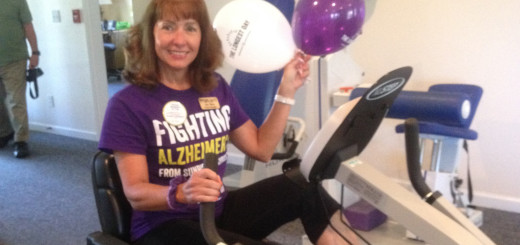Reflections on the NAPA Listening Session in San Francisco
It’s amazing what you learn when you listen as those who attended the NAPA Listening Session in San Francisco on August 10 can attest; in fact, there was some very eye-popping testimony!
No, NAPA does not refer to wine country, but rather the National Alzheimer’s Project Act, federal legislation that was signed into law in January, 2011. The federal Department of Health and Human Services is charged with its implementation and it’s encouraging that they are actively taking part in these sessions. After all, it’s the input from people who know what they are talking about who are best prepared to shape a National Alzheimer’s Plan: those living with Alzheimer’s, caregivers, health care professionals and researchers.
The meeting was kicked off by Bill Fisher, CEO of the Alzheimer’s Association, Northern California and Northern Nevada Chapter, Harry Johns, national CEO of the Alzheimer’s Association, and Donold Moulds, from the Health and Human Services Agency. But the real VIPs were sitting in the audience, especially the many who spoke concisely and intelligently from the heart, with passion and inspiration.
One of the most interesting comments was from a woman who may have been the only person in the room who did not know anything about Alzheimer’s. She was astounded by how much she learned about the disease and I think from now on, she’ll certainly perk up her ears when she next hears the word “Alzheimer’s.” Most importantly, she epitomized the reason we need to build a robust public awareness campaign. Perhaps we expect those who have not yet experienced Alzheimer’s to lack knowledge, but they aren’t the only ones. It’s also the people working in the field who don’t get sufficient education and training about Alzheimer’s.
Misinformation can lead to much harm, as was expressed by the audience. One speaker’s father gave away hundreds of thousands of dollars because he couldn’t manage his finances any longer. Another health care professional was told by a law enforcement officer that he would rather “deal with criminals than with the demented.” Those are harsh, and forgive me, stupid words. Another family member expressed how hard it was to find out about research trials. Several voiced the difficulty in getting a diagnosis, and in one case, a woman’s mother was given a prescription for Aricept without any discussion with the doctor that she actually had Alzheimer’s!
Educating the federal government about the impact of Alzheimer’s on our families and our lives should be a priority, as was powerfully expressed by a caregiver who has suffered physical, emotional and financial pain. These comments were echoed by many who know first hand that caregiving is a full time job, leaving many with no ability to stay or re-enter the workforce. On a positive note, another participant expressed how attending the “Savvy Caregiver” series offered by the Alzheimer’s Association changed her life.
The need for research is of course absolutely paramount and the insight learned from scientists around the Bay Area was enlightening. Did you know that while America’s funding of Alzheimer’s remains woefully inadequate, Germany recently increased its Alzheimer’s funding by $86 million annually? If we translate that on a GDP basis, it would equate to an increase of $350 Million in this country. We could do a lot with that money, but alas, it’s not there. And only 10% of viable research applicants to the National Institutes of Health (NIH) are funded. That’s more than shameful! With such a track record, how can we maintain the interest of the brilliant young scientists who are eager to find a cure for Alzheimer’s?
Great ideas were put forth; people living with Alzheimer’s and their caregivers spoke with such insight; and Donald Moulds from the federal Department of Health and Human Services said it was “difficult but inspiring” to hear all of the stories. There will be a website dedicated to NAPA’s implementation as a source of information for anyone who wants to follow its progress and stay informed. We’ll let you know how to access that when it’s up and running.
Don’t forget, if you couldn’t attend the session or didn’t get a chance to voice your comments, please submit your ideas online; go to www.alz.org/NAPA to provide your feedback. You can also sign up for regular updates about the Plan’s progress at www.alz.org/NAPA.
Although I’ve been involved with Alzheimer’s for more than 20 years, I never fail to learn something new and important when I listen to people who deal with it every day. This session was just another shining example of how much we all have to learn.


















Sherrie,
What great information you’ve shared with your readers. This Act is important to everyone who suffers from or cares for someone with Alzheimer’s. Like you said, there is always something we don’t know and I’m always surprised when I hear of others, like the woman in the room during your discussion. Increased awareness is something we can all work toward.
Thanks for sharing,
Brian Jackson
Home Instead Senior Care
San Jose, CA